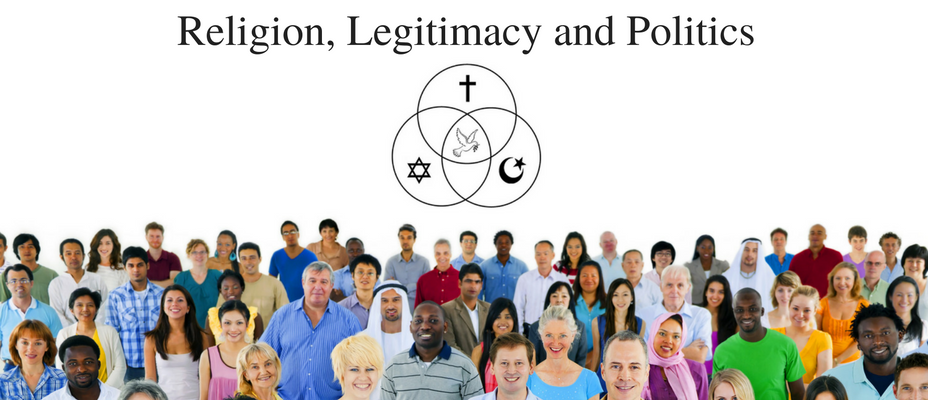By Rudy Barnes, Jr.
Germany has been the bellwether for refugee resettlement in Europe, but Chancellor Angela Merkel may have surprised her supporters recently when she said: "Multiculturalism leads to parallel societies and therefore remains a ‘life lie,’ ” or a sham, before adding that Germany may be reaching its limits in terms of accepting more refugees. "The challenge is immense," she said. "We want and we will reduce the number of refugees noticeably."
This was not the first time that Merkel had questioned multiculturalism as a paradigm for settling refugees in Germany. In 2010 she said: "Of course the tendency had been to say, 'Let's adopt the multicultural concept and live happily side by side, and be happy to be living with each other.' But this concept has failed, and failed utterly."
Multiculturalism and assimilation are two contrasting approaches to resettling refugees. Multiculturalism allows immigrants to maintain their unique ethnic and religious cultural traditions, while assimilation requires immigrants to conform to the laws, language and values of the nation in which they are being resettled and minimize their ethnic and religious differences.
In The Failure of Multiculturalism Kenan Malik has argued that the multicultural policies of Germany and Great Britain and the assimilationist policies of France have all failed. The politics of political ideology have been replaced by a politics of identity, producing “fragmented societies, alienated minorities, and resentful citizenries.” It is only when immigrants see themselves as citizens and an integral part of a country’s political culture rather than as isolated ethnic and religious minorities that they can truly be assimilated.
To avoid “fragmented societies, alienated minorities, and resentful citizenries” refugees must accept prevailing concepts of legitimacy(perceptions of what is right and wrong) wherever they are resettled, and religions can create conflicting concepts of legitimacy. In many Islamic cultures Islamic law, or shari’a, prevails over secular law and there is no separation of politics from religion, while in libertarian democracies human rights and the secular rule of law prevail and government cannot promote religion. These are politically divisive issues, as evidenced by the mean-spirited rhetoric of Donald Trump and Ted Cruz, and they go to the heart of the greatest commandment to love God and our neighbors as ourselves, questioning whether our neighbors include those of other religions.
In matters of politics, Muslim refugees coming to the U.S. should accept libertarian concepts of democracy, human rights and the secular rule of law. As for religious matters, if Muslims consider the love of God and their neighbors—including their unbelieving neighbors—as a common word of faith, then other religious issues are secondary.
Ramesh Ponnuru has compared Muslim immigrants to Catholic immigrants of the 19thcentury who had trouble assimilating to U.S. values. He noted Donald Trump’s call for ‘complete, total shutdown’ of Muslim immigration, and recalled that Americans once had similar anxieties about Catholics; but that America changed them rather than them changing America.
“Many Muslims don’t believe in religious liberty. In the 19th century, nativists directed such fears at Catholic immigrants. Although these worries were mixed with bigotry, they weren’t baseless: The Catholic Church really was hostile to freedom of religion. Yet Catholic immigration to the United States didn’t end up subverting American liberalism so much as it liberalized Catholicism. It had this effect because Americans lived out their commitment to toleration. A ban on Catholic immigrants would’ve been an enormous mistake, denying us the talents of tens of millions of people and retarding the spread of our principles.”
The last national debate over whether Catholicism was a threat to American values was during the presidential campaign of John F. Kennedy in 1960. Just as American libertarian values changed Catholicism, they could also change Islam so that it conforms to democracy, human rights and the secular rule of law. Like the Jews and Christians before them, Muslims who resettle in libertarian democracies are likely to embrace the political values of their adopted country. That could reform Islam into a religion compatible with progress and modernity, promote religious reconciliation and undermine the legitimacy of radical Islamist terrorism.
Notes and References to Resources:
Previous blogs on related topics are: The Greatest Commandment, January 11, 2015; Love over Law: A Principle at the Heart of Legitimacy, January 18, 2015; Jesus Meets Muhammad: Is There a Common Word of Faith for Jews, Christians and Muslims Today? Religion and Human Rights, February 22, 2015; Religion, Human Rights and National Security, May 10, 2015; Legitimacy as a Context and Paradigm to Resolve Religious Conflict, August 23, 2015; The European Refugee Crisis and Radical Islam, September 6, 2015; and The Muslim Stranger: A Good Neighbor or a Threat, October 25, 2015.
On Angela Merkel referring to multiculturalism as a sham, see https://www.washingtonpost.com/news/worldviews/wp/2015/12/14/angela-merkel-multiculturalism-is-a-sham/?wpmm=1&wpisrc=nl_evening.
On Kenan Malik’s The Failure of Multiculturalism, see https://www.foreignaffairs.com/articles/western-europe/failure-multiculturalism.
On Ramesh Ponnuru’s comparison of Muslim immigrants to Catholics of the 19th century, see http://www.thestate.com/opinion/op-ed/article48855990.html.
Muslim refugees being resettled in the U.S. should be encouraged to participate in an interfaith dialogue group to better understand U.S. values. At the outset they should acknowledge the greatest commandment to love God and our neighbors as ourselves—even our unbelieving neighbors—as a common word of faith, and then agree to a concept of justice based on human rights and secular law, affirming that people of all faiths are responsible for maintaining the good order of society through democratic government and secular laws that protect fundamental human rights (including the freedoms of religion and expression), deter violence and promote peace and equal justice under law. For a model of an interfaith dialogue group that promotes these objectives, see Interfaith Fellowship: Seeking Reconciliation through a Common Word of Faith at https://drive.google.com/file/d/0B3gvZV8mXUp-RFhMaTRYOTZIVm8/view.
